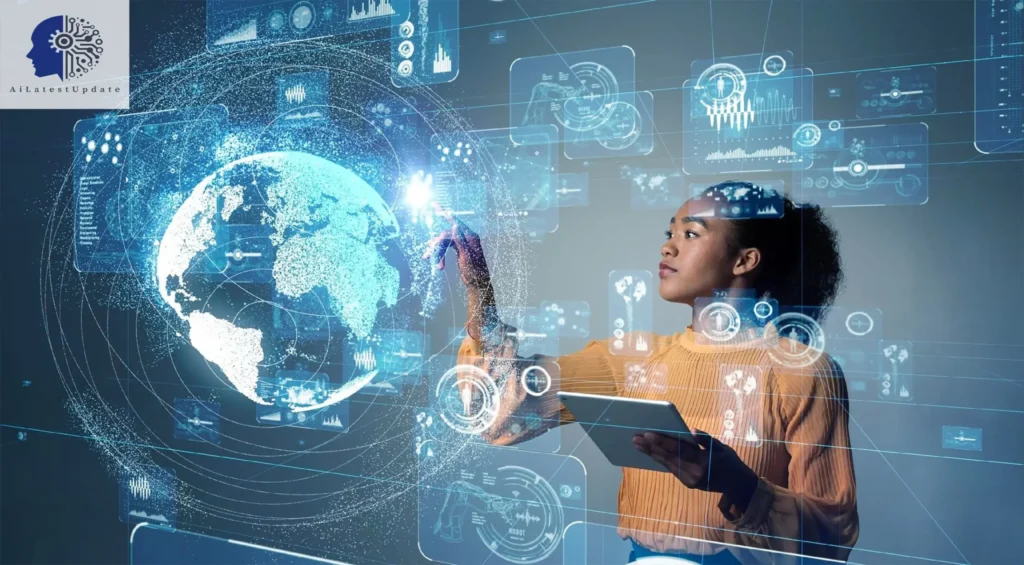In today’s fast-evolving digital landscape, marketing is no longer just about creativity and strategy. A significant shift is occurring where data-driven technologies and artificial intelligence (AI) are becoming the backbone of modern marketing efforts. According to a recent study, 7 in 10 organizations now leverage marketing technologies (MarTech) and generative AI (Gen AI) to power their marketing initiatives. This growth underscores how essential these tools have become in staying competitive and responsive to customer needs.
The Rise of Marketing Technologies and Gen AI
The marketing world has changed dramatically in the past few years. Traditionally, marketing was seen as more of an art than a science, but as digital channels have increased, so too needs advanced technology to manage the complexity. Marketing technologies, such as customer relationship management (CRM) platforms, data analytics tools, and automation software, have enabled organizations to tailor their marketing efforts with precision.
What’s driving this surge in MarTech and Gen AI adoption? The answer lies in the increasing importance of personalized customer experiences and the ability to make data-driven decisions. Marketers now rely on technology to analyze vast amounts of customer data, predict behavior, and create highly targeted campaigns.
Why Generative AI is Gaining Traction

Generative AI, a subset of artificial intelligence, has seen a meteoric rise in marketing over the past couple of years. Unlike traditional AI, which simply automates processes, Gen AI can create new content, ideas, or solutions by learning from existing data. For marketers, this technology opens up endless possibilities, including automated content creation, personalized ad copy, and even AI-generated product recommendations.
Marketers are particularly drawn to Gen AI because it reduces the time and effort needed to create high-quality, personalized marketing assets. Whether it’s drafting blog posts, generating product descriptions, or producing social media content, Gen AI can do it faster and with more consistency than human teams.
Key Findings from the Study
The study, which surveyed over 1,000 businesses across various industries, reveals a few critical insights:
- Widespread Adoption:
70% of surveyed organizations are now using marketing technologies and generative AI as part of their marketing strategy.
- Increased Investment:
Companies are allocating more of their marketing budgets toward these technologies, seeing them as crucial for competitive advantage.
- Enhanced Customer Personalization:
Nearly 60% of businesses report that their use of MarTech and Gen AI has significantly improved their ability to deliver personalized experiences.
- Efficiency Gains:
Over half of the respondents say that these technologies have allowed them to scale their marketing efforts without dramatically increasing headcount.
- Innovation in Content Creation:
45% of organizations are already using generative AI to create digital content, from social media posts to entire blog articles.
The Role of Personalization in Modern Marketing
Personalization is one of the most significant drivers of the increasing adoption of marketing technologies. Customers today expect highly tailored experiences, and marketers need advanced tools to deliver those experiences efficiently. CRM systems and AI-powered platforms analyze customer interactions, browsing habits, and purchase histories to provide personalized product recommendations or promotional messages.
With generative AI, personalization has reached new heights. AI tools can now generate custom content in real time, based on a user’s preferences or past behavior. This level of personalization not only increases customer engagement but also drives conversions, making AI-powered marketing an essential component for modern businesses.
How Marketing Technologies Streamline Operations
MarTech platforms are designed to simplify and streamline various marketing tasks. Automation tools can handle everything from email marketing to social media posting, freeing up human marketers to focus on more strategic efforts. AI-driven analytics platforms, on the other hand, can sift through mountains of data to provide actionable insights, allowing businesses to optimize their marketing strategies in real time.
One of the most significant benefits of MarTech and Gen AI is their ability to improve efficiency. Automated workflows, AI-driven decision-making, and predictive analytics reduce manual labor and increase the speed at which marketing teams can operate.

MarTech platforms are designed to simplify and streamline various marketing tasks. Automation tools can handle everything from email marketing to social media posting, freeing up human marketers to focus on more strategic efforts. AI-driven analytics platforms, on the other hand, can sift through mountains of data to provide actionable insights, allowing businesses to optimize their marketing strategies in real time.
One of the most significant benefits of MarTech and Gen AI is their ability to improve efficiency. Automated workflows, AI-driven decision-making, and predictive analytics reduce manual labor and increase the speed at which marketing teams can operate.
Industries Leading the Charge in MarTech and Gen AI
While marketing technologies and Gen AI are transforming businesses across sectors, some industries are leading the charge in adoption. Retail, financial services and technology companies are the top adopters, with these industries particularly focused on improving customer experience and operational efficiency.
In the retail sector, for instance, AI-powered recommendation engines and personalized shopping experiences are revolutionizing how brands engage with consumers. In financial services, AI is used for predictive analytics and personalized communication, helping institutions better understand and serve their customers.
Challenges of Implementing Marketing Technologies
Despite the widespread adoption of MarTech and Gen AI, there are challenges associated with their implementation. Many organizations face hurdles such as:
- Data Privacy Concerns:
As companies collect and analyze more customer data, they must also navigate increasingly stringent data privacy regulations, like GDPR and CCPA.
- Integration Issues:
Not all MarTech platforms integrate seamlessly with existing systems, which can lead to operational inefficiencies.
- Skill Gaps:
There is a growing need for marketing teams to have technical skills to manage and optimize these tools effectively. This often requires additional training or hiring new talent.
The Future of Marketing Technologies and Gen AI

The adoption of MarTech and Gen AI is expected to continue growing at a rapid pace. As technologies evolve, we can anticipate more advanced personalization techniques, improved predictive analytics, and even more seamless integration across platforms.
In the near future, we may see marketing technologies become even more embedded in the customer journey, with AI playing a larger role in decision-making processes and customer interactions. Brands that can successfully harness these tools will be the ones that thrive in an increasingly competitive marketplace.
Conclusion:
The study’s findings make one thing clear: marketing technologies and generative AI are no longer optional for organizations looking to stay competitive. With 7 in 10 businesses already on board, the shift toward tech-driven marketing is well underway. Companies that embrace these tools will benefit from greater efficiency, enhanced personalization, and more impactful marketing campaigns.
FAQs:
1. What is marketing technology (MarTech)?
Marketing technology refers to a suite of software solutions and tools designed to optimize and automate marketing efforts. These include CRM systems, data analytics platforms, and automation tools.
2. What is generative AI in marketing?
Generative AI is a form of artificial intelligence that can create content and ideas based on existing data. It’s used in marketing to generate personalized content, product recommendations, and more.
3. How does MarTech benefit organizations?
MarTech improves efficiency, scalability, and the ability to personalize marketing efforts. It helps businesses optimize their marketing campaigns through data analysis and automation.
4. Why is personalization important in marketing?
Personalization helps businesses tailor their messaging to individual customer preferences, which increases engagement and conversion rates.
5. What challenges do companies face when implementing MarTech?
Companies may encounter data privacy concerns, integration issues, and skill gaps when implementing marketing technologies.

